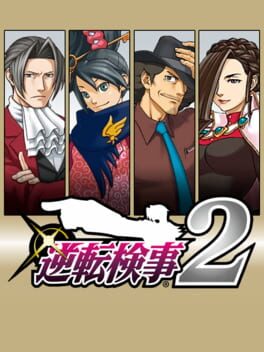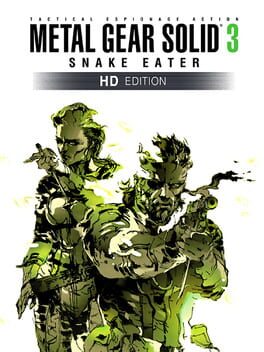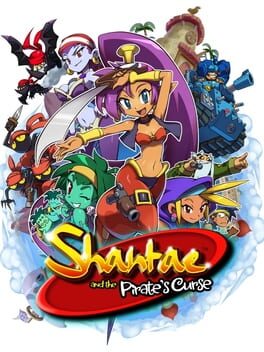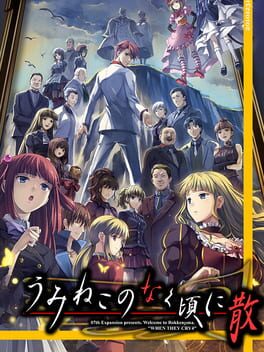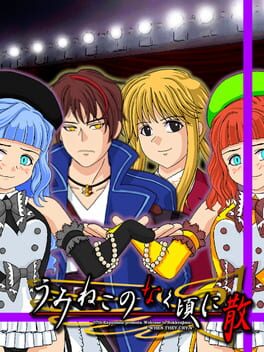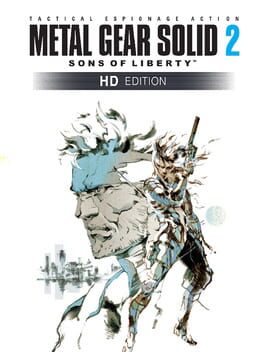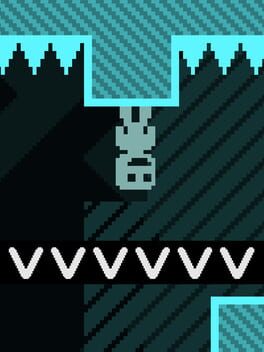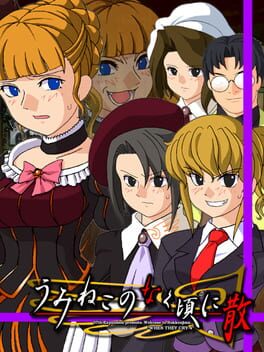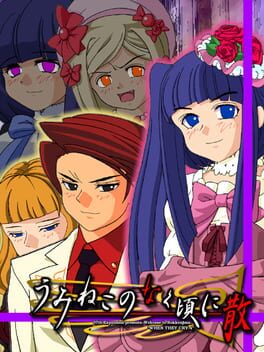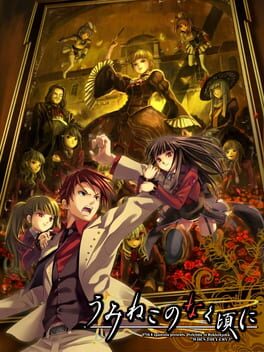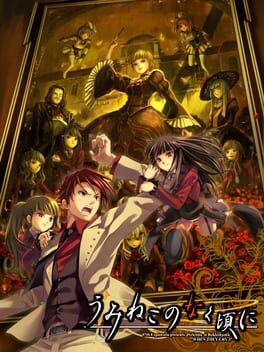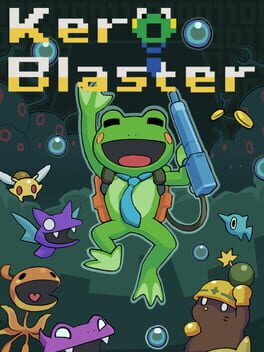Terrace
The focus on overarching story as opposed to each case's episodic narrative creates an experience that is very different from every other Ace Attorney game. The character writing and dialogue is also a bit stronger than the most of the other games in the series. The cast is very strong, making clever use of returning characters, as well as introducing some memorable newcomers. The villains are also particularly strong here. I still think the game on the whole is just a bit weaker than Trials and Tribulations, but its rightful confidence in its underlying mystery lends itself to a wholly unique and enjoyable Ace Attorney experience.
Pretty good. Cleans up the gameplay and shooting from its predecessor a bit, though unfortunately not quite enough to necessarily make the game fun. It also adds a few new unnecessary gameplay elements that only make the experience feel bloated. Atmosphere and plot are good, but not as good as 2's. Ending is pretty damn excellent, though.
Solid gameplay overall, but has a few faults that drag it down. Movement isn't particularly fun until late game, and the progression could be a bit smoother. One of the levels also has some pretty annoying enemies. I was ready to score this half a star higher until the final boss, which is pretty messy, and has one particular design choice that is downright baffling. Music rules, though.
What can I even say? I'm far from the first person to fall in love with this story, and I certainly won't be the last. I'm sure my reasons are incredibly common, but I'd like to lay them out, regardless.
First of all, let's talk about the production. This is a perfectly directed visual novel. The original sprites have so much heart, and the sound design is brilliant. The soundtrack is genuinely one of my favorites in any medium.
The cast, which was already so wonderful and lively in the first half, becomes so much more well-rounded here. Old characters who didn't quite have the chance to shine, like Ange, Bern, and Lambda, are all given their due time, and highly memorable new characters make their appearances as well, like Erika, Dlanor, and Will.
The crossover between mystery and fantasy is a precarious one, and while some people might not like the direction the story takes towards its end, I find it highly touching. This theme, which evolves naturally over the course of eight unique episodes, is simple but beautiful.
Truly, this is an incredibly special and unique work of fiction. Thank you, Ryukishi07.
First of all, let's talk about the production. This is a perfectly directed visual novel. The original sprites have so much heart, and the sound design is brilliant. The soundtrack is genuinely one of my favorites in any medium.
The cast, which was already so wonderful and lively in the first half, becomes so much more well-rounded here. Old characters who didn't quite have the chance to shine, like Ange, Bern, and Lambda, are all given their due time, and highly memorable new characters make their appearances as well, like Erika, Dlanor, and Will.
The crossover between mystery and fantasy is a precarious one, and while some people might not like the direction the story takes towards its end, I find it highly touching. This theme, which evolves naturally over the course of eight unique episodes, is simple but beautiful.
Truly, this is an incredibly special and unique work of fiction. Thank you, Ryukishi07.
As far as I'm concerned, an utterly perfect conclusion. Every character has a moment to shine, and in a story with a cast this good, that's a great thing. But what's really special here is the theming, and the constant push to carve your own path in life. Umineko has always been metatextual, and treading that line would surely be a delicate task for the final episode, but the balance struck here is simply, well, miraculous.
Incomprehensible. Easily the most unique and ambitious Umineko episode, presenting a fascinating spin on the formula, and revealing some intriguing truths. I don't think everything is necessarily truly perfect, and some of the reveals are a little awkward, but it all comes together beautifully. The ending before the tea party may feel a little sudden, but remember, it's not over until it's over.
A huge improvement on its predecessor, to say the least. Just about everything is tighter here. For one thing, it's visually stunning. The simple addition of analog movement makes basic traversal a lot more manageable. Gameplay is mostly less frustrating, too, with more manageable bosses, and a generally better gameplay loop. However, shooting is a big issue here. The incentive to use first-person mode should theoretically make shooting easier, but it's so awkward and clunky that it's almost just as bad. I also have a few actual problems with the story, chief of which is that I think the ending honestly feels a bit rushed. I also think Solidus isn't quite as memorable of a villain as Liquid. Still, a tremendous achievement, and like I started with, a notable step up from its predecessor.
2010
This is easily the most experimental and metatextual episode so far, so I have to give it props for that. I think this is probably the first episode where the theming is more interesting than the characters, which isn't necessarily a good or bad thing, just a change of pace. I wanted to like it more overall, but I think some of the stuff involving the servants' romances were integrated a little haphazardly. Like the two even-numbered episodes preceding it, this is another Umineko episode that tries to do a little too much all at once, does a good job of most of it, but doesn't take the necessary steps to tie everything neatly together.
1998
The least enthusiastic 7/10 I've given from a gameplay perspective, the most frustrating 7/10 I've given from a storytelling perspective. Really quite cruel of Kojima to hide one of the coolest video game narratives behind some of the most frustrating and arbitrarily challenging gameplay the already dated PS1 has to offer.
To put it bluntly, I by and large found this to be a huge slog to get through. Now, I'm not usually a fan of stealth games, but the parts of the game I actually had the most issue with were the action segments. Aiming is a huge pain and movement feels sluggish.
However, as a subversion of action flicks, it's more or less a huge success. I have a few issues with how sappy the "good" ending is, but overall, the story is excellent. Great voice performances across the board accentuate this aspect.
Overall, if I were rating the story in isolation, my score would be half or either a full star higher. If it were just the gameplay, half a star lower.
To put it bluntly, I by and large found this to be a huge slog to get through. Now, I'm not usually a fan of stealth games, but the parts of the game I actually had the most issue with were the action segments. Aiming is a huge pain and movement feels sluggish.
However, as a subversion of action flicks, it's more or less a huge success. I have a few issues with how sappy the "good" ending is, but overall, the story is excellent. Great voice performances across the board accentuate this aspect.
Overall, if I were rating the story in isolation, my score would be half or either a full star higher. If it were just the gameplay, half a star lower.
What a way to kick off Umineko's second half.
Newcomers Erika and Dlanor both bring such life to the story, and brilliantly underpin the story's central theming. The increased focus on Bern and Lambda makes the story's world feel larger and more complete. Natsuhi returns in full force after her remarkable showing in the first episode. And many other returning cast members fill fitting and unique roles.
But, unsurprisingly, the real treat is none other than Battler himself. All his development culminates in an absolutely breathtaking climax that goes above and beyond my expectations for the first episode of Umineko's second half. I'm even more in love with the story prior than I was when I read it, and I am so looking forward to whatever comes next. I expect great things from Battler and Erika's rivalry.
Newcomers Erika and Dlanor both bring such life to the story, and brilliantly underpin the story's central theming. The increased focus on Bern and Lambda makes the story's world feel larger and more complete. Natsuhi returns in full force after her remarkable showing in the first episode. And many other returning cast members fill fitting and unique roles.
But, unsurprisingly, the real treat is none other than Battler himself. All his development culminates in an absolutely breathtaking climax that goes above and beyond my expectations for the first episode of Umineko's second half. I'm even more in love with the story prior than I was when I read it, and I am so looking forward to whatever comes next. I expect great things from Battler and Erika's rivalry.
One of the more interesting experiments in video gaming I've had the joy of playing. It's certainly not perfect, with a lot of fumbles in its character writing, as well as the destruction gameplay. But these negatives are mostly outweighed by its fascinating narrative ambition. Definitely one of a kind.
Umineko's question arcs are, unsurprisingly, masterful. Every piece of their puzzle exemplifies Ryukishi's growth as a writer, and his ability to craft mysteries that deliver themselves both subtly and intensely, occasionally at once. The cast is evidently this VNs strongest point. The episodic format effortlessly demonstrates each individual character's potential to carry large portions of the story, a strength used to great effect.
Certainly, I suspect many of my opinions on these four arcs will change after reading the ensuing answer arcs. But for now, clichéd as it may be, I wouldn't be honest if I said anything other than that this as one of the most ambitious, well-crafted, and yes, loving VNs I've ever read.
Certainly, I suspect many of my opinions on these four arcs will change after reading the ensuing answer arcs. But for now, clichéd as it may be, I wouldn't be honest if I said anything other than that this as one of the most ambitious, well-crafted, and yes, loving VNs I've ever read.
A bit unfocused at times, but overall a resounding conclusion to Umineko's first half. Ange is an impeccable newcomer to the cast. Battler and Beatrice are at the top of their game, truly coming into their own. There's also some surprisingly clever parallels to Higurashi's fourth episode. However, the beginning does noticeably struggle to find its footing, but thankfully the conclusion is arguably the highest point of the series so far.
Bravo, Ryukishi.
Bravo, Ryukishi.
2014
